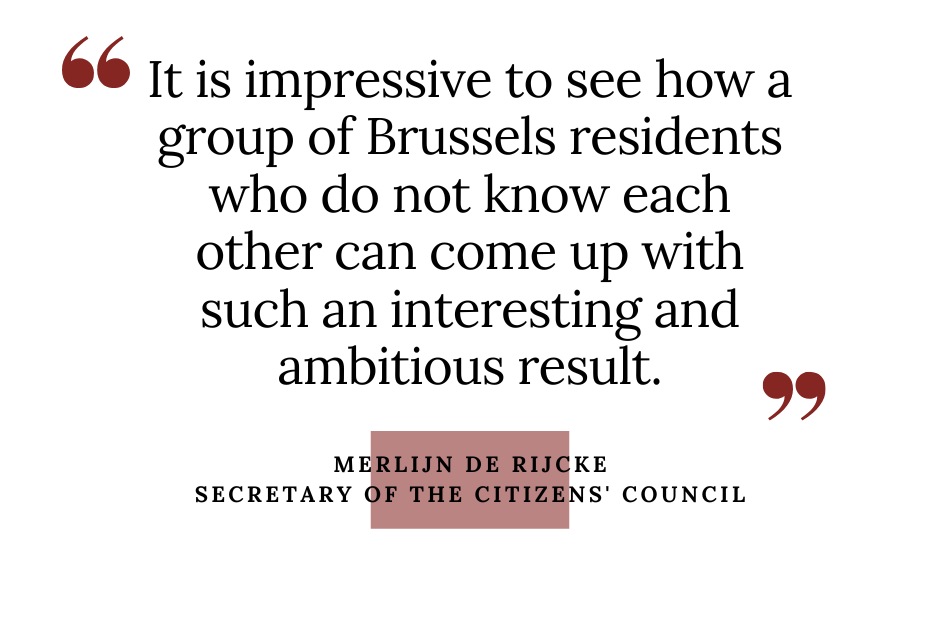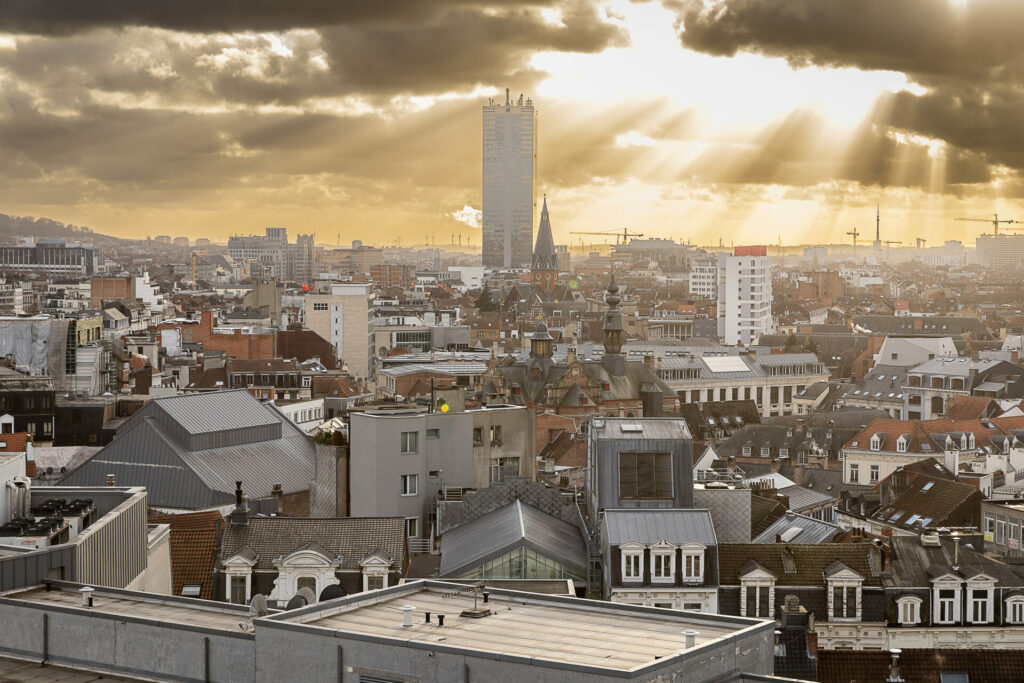Social justice, sustainable development, collective living, and more "nature-central" spaces; this is what the Brussels Government needs to take into account in its climate governance, according to a citizen group.
How do we want to live in 2050? How will we move around and live? And above all, what do we need in the short and medium term to land there? These are some of the crucial questions debated by members of the region's first Citizens' Climate Council, who for four months have been debating the best way forward.
The group, an initiative of the region as part of its climate governance, constructed a dream image of Brussels in 2050, which they bundled in a report presented to the Brussels government on Friday evening.
"The big difference between the Citizens' Council and a referendum is that here we are looking for a more nuanced answer, not 'for or against', but for a collective opinion taking into account as many interests as possible," said Merlijn De Rijcke, secretary of the Citizens' Council.
"It is impressive to see how a group of Brussels residents who do not know each other can come up with such an interesting and ambitious result in such a short time," he added.
Commitment, consultation and support
The report focussed on three major themes: living differently, socially-just renovation and greening for a better life in the city. It includes nine ambitions (three per theme), and more than 60 recommendations based on their own experiences of living in the region and observations.
When queried, citizens advocated for encouraging shared facilities and spaces, from bicycle garages to gardens and laundry rooms, adding that this should be included in any new construction project. The Brussels Region should also better facilitate the repurposing of vacant buildings, as is being done in Molenbeek to help homeless families.
The group also called for "massive housing renovations" with a focus on social justice, proposing that the system of renovation grants is adjusted in a fairer way so more people can receive premiums and that more help is offered for those applying for and carrying out energy renovations.
Finally, the citizens recognised that Brussels is already a fairly green city, but argued that access to green spaces is not evenly distributed. "Some areas, such as the Pentagon, suffer more from the effects of heat islands. Additional green spaces are necessary to counter the effects of climate change," the report read.
 The ambition is to better distribute greenery, reduce paving and preserve biodiversity, among other things by greatly increasing urban foliage for denser and more extensive vegetation.
The ambition is to better distribute greenery, reduce paving and preserve biodiversity, among other things by greatly increasing urban foliage for denser and more extensive vegetation.
"We all hope that our recommendations will be implemented as soon as possible, because time is running out," De Rijcke said, adding that the residents have made their contribution and that it is now "up to the Government to start working with the recommendations."
Related News
- Unblocking Brussels Metro 3: Palais du Midi dismantlement confirmed
- 'Missing link': Tram from Brussels to Zaventem airport one step closer
Brussels Minister for the Environment Alain Maron noted he is already impressed by the work that was done.
"We are facing a lot of change and we must continue to build a strong society. This requires commitment, consultation and support. The fight for a better environment and a liveable planet must be fair, which is why we must continue to expand the number of places where we can listen to and take action with engaged citizens," he said.
The Brussels Government will provide feedback to citizens in September 2023 to determine which measures are feasible and which are not, and in April 2024, ministers will propose a more complete roadmap.

